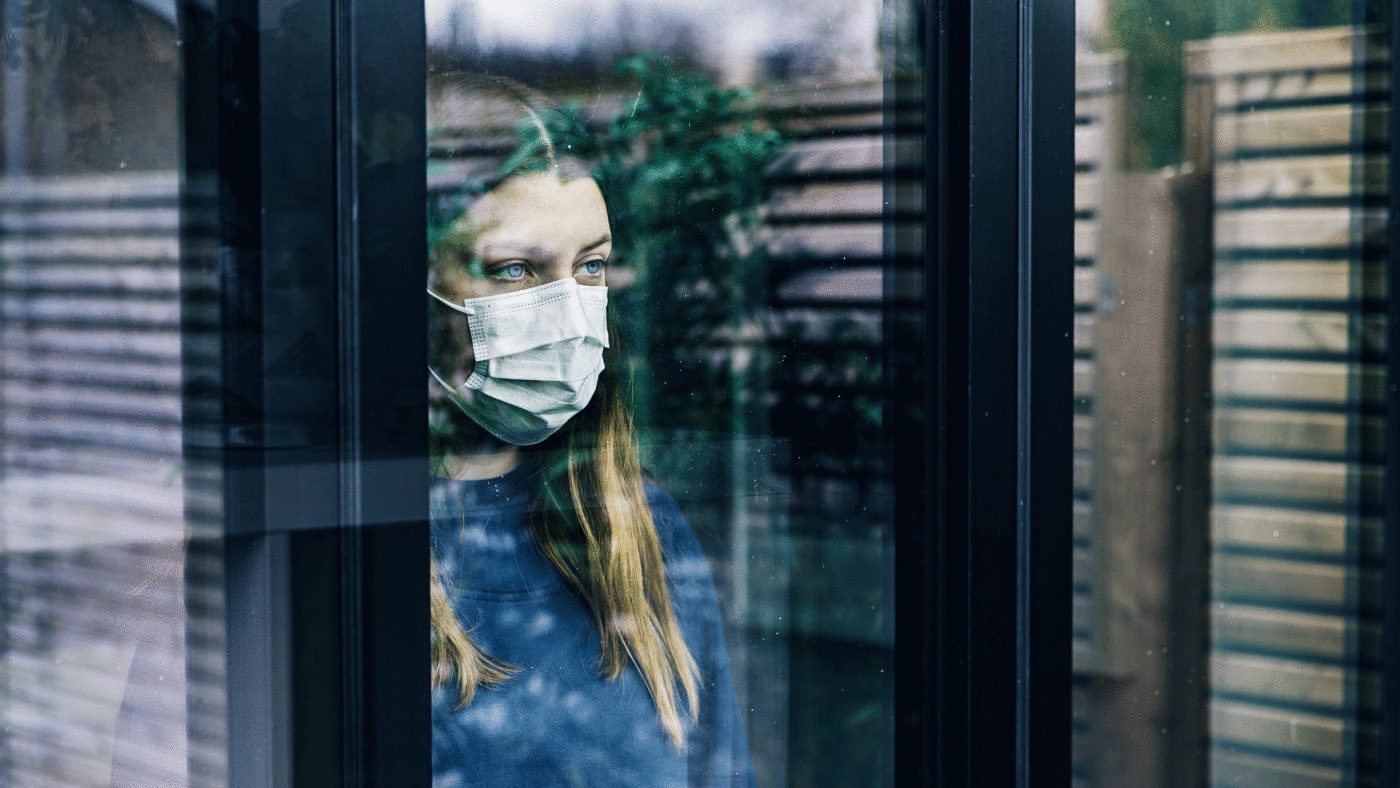What will be the economic legacy of this pandemic? The IMF believes US GDP will now be larger by the end of 2022 than predicted back in 2019 – in other words, there will be no persistent impact from this past year’s turmoil on American output. The Office for Budget Responsibility, of course, is still pessimistic: its central assumption is still that potential output will be 3% lower in the medium-term due.
That we see such contradictory predictions is unsurprising, given the uncertainties. Our GDP performance will, in part, depend on macroeconomic policies, but also a host of other unknowns. How will changed consumer spending habits and new ways of working affect industry? How sticky will the growth of government prove, and what does that mean for tax rates? What will be the longer-term effect of lost schooling on human capital and productivity?
But there’s another thing worrying economists and it could dwarf these in magnitude: a potential “psychological scarring”. We all worry to different degrees about unusual risks such as pandemics. Yet, as humans, we often fall foul of an “availability bias,” placing larger weight on the possibility of events that are easily recalled. If living through Covid causes us to revise up our projections of the likelihood of extreme, negative shocks like pandemics, then risky investments might become less attractive, permanently reducing output.
Is this likely? You can easily imagine this past year making would-be entrepreneurs reluctant to plough their life savings into entertainment, hospitality, or leisure industries. Even if politicians don’t engage in the destructive forced repatriation of supply chains they have threatened, this reminder of a pandemic’s possibility will no doubt see more firms shift from ‘optimising’ their supply chains to thinking about resilience to shocks too.
But what if we become far too risk averse? Right now, I have friends who, despite being fully vaccinated, refuse to eat indoors with others, even if they have also been vaccinated. Plenty of well-educated, vaccinated Americans still wear masks when totally alone outdoors and despite government guidance downplaying the need. This extreme risk aversion is not helped by a media in the US that, according to analysis by Dartmouth College economics professor Bruce Sacerdote, produces overwhelmingly negative stories on the pandemic, even when there’s good news about the future.
When Covid cases were falling in the US, Sacerdote found the media here would nevertheless emphasize the rising cumulative toll of deaths. Even when vaccines were rolled out, news outlets talked up the risk of escape variants, side effects, or other caveats. With negative consequences having been so amplified, it’s not hard to imagine scarred populations fearing future pandemics, and perhaps being overly paranoid about low-probability, high-risk events, whether that be extreme outcomes from climate change, asteroids, or volcanic eruptions.
True, history suggests we should be sceptical of fatalistic proclamations here. In his fantastic new book, Doom, historian Niall Ferguson explains that one striking feature of catastrophe is just how quickly people return to normal. The Roman Empire appeared largely unshaken by Vesuvius’s eruption; the Spanish flu left little discernible impact other than the shocking death toll.
Indeed, research by economists Natalia Martín Fuentes and Isabella Moder on the impact of other exogenous events such as epidemics, major wars, or oil price shocks, has found that none appear to bring a persistent downturn in GDP, at least after a couple of years. That, of course, stands in stark contrast to the impacts of ‘endogenous’ recessions, such as financial crises.
Humans, quite simply, often revert to type. American economist Kip Viscusi found the Ebola scare had relatively little impact on how Americans judged the desirability of pandemic preparedness. If anything “the current pandemic has led most people to take these risks more seriously, which hopefully will lead to more precautions going forward,” he told me.
The problem, according to Viscusi, is that humans “have little practical experience of low probability catastrophic events, making it hard to get judgments right.” It’s clear listening to our public debate that risk tolerance levels are not universal. “Some people will overreact and some will underreact,” he said. Who knows what, on aggregate, society’s view on future risks will be?
But unlike with previous epidemics or “scares,” Covid has caused pervasive disruption for over a year. Work by economist Ulrike Malmendier has found adverse macroeconomic conditions early in life can have long term effects on people, particularly heightening financial risk aversion. And with higher wealth and new technologies, there’s perhaps more reason to expect stickiness than when we were subsistence farmhands or returning from the Somme.
In fact, I’ve seen other stories suggesting extreme risk aversion even beyond Covid related issues – from a US store destocking a whole host of trading cards nationwide after a single car park fight out of “an abundance of caution,” through to some truly crazy behaviour in reaction to the US Colonial pipeline hack.
Yes, this pandemic was a wake-up-call to many who were too sanguine about the risks associated with viral pathogens. It helps, according to Ferguson, to have a few Cassandras in government warning about outlandish risks. But if the experience of the pandemic makes society far more worried about catastrophe than justified, then the scarring consequences of this crisis will be far larger than we’ve so far contemplated.
Click here to subscribe to our daily briefing – the best pieces from CapX and across the web.
CapX depends on the generosity of its readers. If you value what we do, please consider making a donation.


